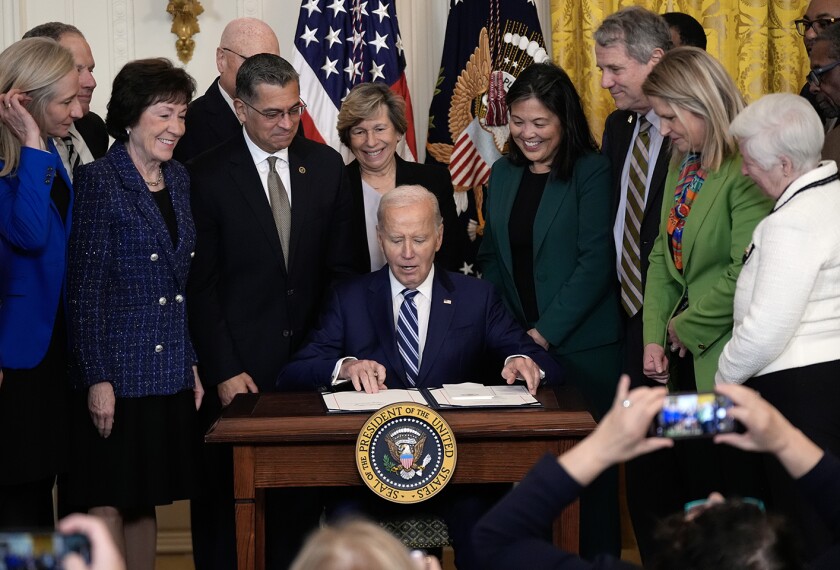Stagnating wages and skyrocketing health-care costs are pushing America’s public school employees to their breaking point. After the recent strike in West Virginia, teachers in Kentucky and Oklahoma staged their own walkouts this month. Now, Arizona educators skeptical of their governor’s conciliatory pledge to hike wages are considering similar protests.
Why is this happening? And why now?
The teacher pay penalty is part of the problem. While low wages in this female-dominated profession are not a new phenomenon, the earnings gap between teachers and other workers with the same level of education has grown significantly wider. According to data analyzed by the Economic Policy Institute, public school teachers’ weekly wages were 17 percent lower than the wages of comparable workers in 2015. The gap was under 2 percent in 1994.
But wages are only part of the compensation story.
When we take away affordable health insurance and do not rebalance total compensation through salary, the profession loses its appeal."
Many teachers enter the profession with a tacit (and sometimes explicit) agreement to accept a lower salary in exchange for better benefits, particularly affordable health care. The proportion of the salary-benefit split varies, but it is generally greater for educators than for other professionals. In analyzing Bureau of Labor Statistics data, the Economic Policy Institute also found that teachers—both public and private—received 11.2 percent of their compensation in the form of insurance benefits in 2015. For other comparable professionals, that number was 8.7 percent—not nearly a great enough difference to offset the growing compensation gap for teachers.
This agreement to trade higher wages for more expansive benefits has clearly eroded. Health insurance premiums, particularly for family plans, are soaring. Some teachers have reported paying more than a thousand dollars a month to insure themselves and their families. The average premium for a family plan is now more than $7,000 per year for teachers. That’s roughly $1,200 more than other state and local employees pay.
Our recent survey of educators in Vermont revealed the scope of this financial strain. Although Vermont boasts a high-quality K-12 education system, its teachers are struggling with flat wages and rising health insurance premiums, deductibles, prescription costs, and other out-of-pocket expenses. Among the roughly 1,000 respondents, more than half of Vermont’s educators told us they are working additional jobs—on weekends, during the summer, or both—to make ends meet.
The social contract is broken. When we take away affordable health insurance and do not rebalance total compensation through salary, the profession loses its appeal. Teachers may be lured to higher-paying states or marginally better-paying jobs, which require fewer unpaid hours and for which they do not have to spend their own money on supplies.
The result, as we have seen in West Virginia and now in Kentucky, Oklahoma, and Arizona, is overcrowded classrooms, a lack of certified teachers, and the decline of public education.
This could be only the beginning.





